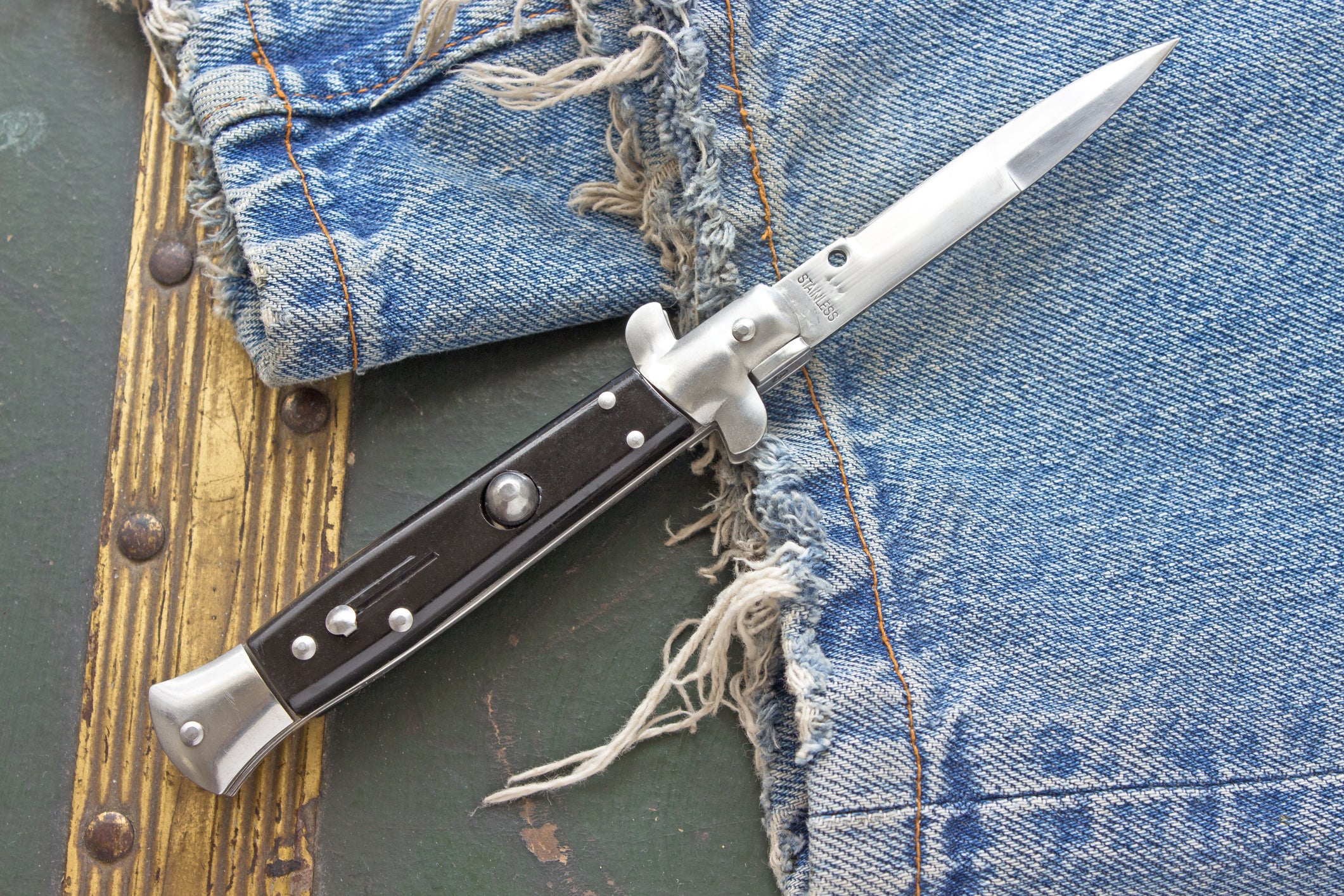Massachusetts reverses switchblade carry ban, saying they are protected under Second Amendment
State’s high court argued that switchblades were considered an ‘arm’ and therefore protected by the Second Amendment

A nearly 70-year-old ban on carrying switchblades in Massachusetts was reversed by the state’s highest court on Tuesday after they determined that the knives are considered “arms” and therefore protected under the Second Amendment.
“Folding pocketknives not only fit within contemporaneous dictionary definitions of arms -- which would encompass a broader category of knives that today includes switchblades --- but they also were commonly possessed by lawabiding citizens for lawful purposes around the time of the founding,” Justice Serge Georges Jr. wrote in the opinion.
The law, enacted in 1957, prohibited the possession of a switch knife or “any knife having an automatic spring release device by which the blade is released from the handle.”
But a man challenged the law in 2020 after he was charged with carrying a dangerous weapon. Officers found the switchblade on him while intervening in an altercation between him and his girlfriend.
The Massachusetts Judicial Court ultimately sided with the man, vacating the charge.
In deciding the cases, justices relied heavily on the precedent of New York State Rifle & Pistol Association v. Bruen (2022). A Supreme Court case that expanded gun rights by creating a two-part test for all modern gun laws to pass. That test asks whether the Second Amendment covers the challenged regulated conduct and if the statute is consistent with U.S. “history and tradition”.
Justice Georges said switchblades fall under the definitions of the Second Amendment because they are “widely owned and accepted as a legitimate means of self-defense across the country”.
The Second Amendment protects Americans’ right to bear arms, which the court said did not just represent firearms but any weapon that could be used to defend oneself. Justices pointed to the historical use of knives as an example of how knives fall under “arms” – specifically by colonists.
They also argued the switchblade law was unnecessary because “nothing about the physical qualities of switchblades suggests they are uniquely dangerous” and they are “weapons in common use today by law-abiding citizens.”
“The Commonwealth has not presented any evidence as to why a spring-operated mechanism that allows users to open switchblades with one hand makes switchblades uniquely dangerous when compared to a broader category of manual folding pocketknives. Certainly, like handguns, switchblade knives are particularly suitable for self-defense,” Justice Georges wrote.
Only seven states, and the District of Columbia, have laws prohibiting or restricting the open carry of switchblades.
But Tuesday’s ruling is important because it is an example of how Bruen can be interpreted to challenge other laws that regulate dangerous weapons.
Join our commenting forum
Join thought-provoking conversations, follow other Independent readers and see their replies
Comments
Bookmark popover
Removed from bookmarks